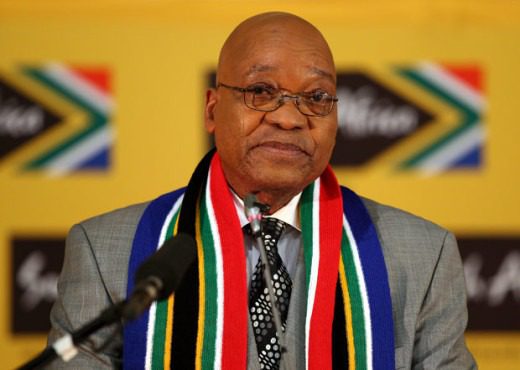National Issues
Expediency Of Tackling Tribalism To Unite Nigerians -By Isaac Asabor
When the issue of tribalism is adequately addressed, hatreds and conflicts will have been defused and in time governance should improve, corruption should decrease, skilled citizens will return home, investment will be encouraged, developments will occur and living standards will most likely improve. Most importantly tribal violence will be eradicated in the country.

There is no denying the fact that tribalism in Nigeria is responsible for underdevelopment, corruption, the rigging of elections, and violence. In fact, tribalism in Nigeria is not a historical inexorableness but seems as if it is in the collective DNA of the people.
Thus, it can be recalled in this context that before the coming of the colonialists in Nigeria that people affiliated with various tribes lived in their own distinct areas with their own cultures, that is, language, customs, and myths of origin among other concepts. The communities freely lived from each other, save for some conflict over the border divide.
In fact, when the British came, they brought with them the principle of divide and rule. They magnified differences among the various communities and tribes, prompting clashes whereby each community distrusted and fought the other.
This served as the breeding ground for negative tribal stereotypes which then became embedded in popular belief.
This situation of suspicion persisted till the time when independence was realized in 1960, at which point tribal suspicions shot up as the three major tribes, Yoruba, Ibo, and Hausa began squabbling over power.
Without a doubt, tribalism in Nigeria is indeed a major stumbling block to democracy as well as socio-economic development. It persists since it provides an avenue through which state goodies and favors trickle down from those in power to their tribesmen. Therefore, loyalty to the tribe is given ever greater relevance than loyalty to the country.
Without resorting to exaggeration, tribalism is responsible for a lot of ills such as underdevelopment, corruption, rigging of elections and violence, and civil war as earlier noted in this context. There is also no meritocracy as people are given jobs based on tribe regardless of having low qualifications. Hence the inefficient use of available skills. The exploitation of natural resources also takes a tribal angle, with resources in some areas being ignored or under-utilized. Bad governance and lack of accountability is also linked to tribalism as people will never question a government run by their tribesmen: even if it makes mistakes they remain supportive of it firmly and blindly. The reverse is also true. This means that even if a government does well it will receive daily unnecessary criticism from the tribes not in the ruling party. Tribalism is thus used to withhold or provide preferential services and resources.
No thanks to tribalism as the just concluded presidential election conducted on February 25, 2023, that had Asiwaju Bola Ahmed Tinubu of the All Progressives Congress (APC) emerged as the winner, as announced by the leadership of the Independent National Electoral Commission (INEC).
In fact, since his somewhat pyrrhic victory was made public, not a few Nigerians are questioning the freeness and fairness of the election. They are asking how credible was the election? They are asking for whom is the conclusion of the election?
And for which tribe? For whose benefit? For rival tribes? Given the tribal coloration that now characterizes the victory obtained by Tinubu, there is no denying the fact that there is animosity, distrust, and hatred among various tribes since Saturday, February 25, 2023.
Without resorting to exaggeration in this context, the handwriting on the wall about tribalism in the country is legible and bold so much so that even intermarriages among some tribes are strongly discouraged by the older conservative generation as well as the rural folk.
Without a doubt, tribalism has now infiltrated politics so much that politicians are now voted for by virtue of their tribal leanings. So bad is the situation that leaders now appeal to people of their own tribes for support during elections, and use their tribes as leverage when they bargain for positions and favors in government.
In fact, heightened tribalism in the country has compromised the church and rendered the religious fraternity unable to offer guidance on matters of national relevance. Worse of all is that election is no more based on issues, ideologies, or principles. Rather it has become an avenue for voting out any politician that is affiliated with a different tribe or ethnic group.
Given the foregoing backdrop, it is expedient to think of how the somewhat pandemic can be tackled as a way of uniting Nigerians.
Thus, it is expedient to say that there is no point for our leaders to be playing the ostrich as per the ills bedeviling Nigeria while ignoring the actual causes since the major cause of tribalism in Nigeria today is competition and confrontation over power and resources. Against the foregoing backdrop, it is expedient to say that at the back of their minds, there must be a clear formula for sharing power and resources through constitutional arrangements. This will ensure that there is no more skewed distribution of state resources as tribes or communities might be fairly represented.
Without a doubt, tribalism is a retrogressive practice, as some citizens like demeaning others and belittling others by disrespecting and making fun of other people’s cultures and customs.
In fact, dehumanizing other people or simply considering them inferior is unacceptable and can degenerate into fistfights. Our leaders, through various orientation agencies, must help citizens to learn, understand and even just get a glimpse into the cultures of other Nigerians, since this alone will wipe out myths, generalizations as well as misconceptions, skewed and limited information about other tribes and cultures.
Against the foregoing backdrop, building bridges across different cultures is necessary since, when standing inside our own conceptual schemes, we are blind to the possibilities of other ways of thinking, seeing, understanding, and interpreting the world.
It would also help if international donor agencies such as the World Bank would peg all development aid to conditions such as success in instituting constitutional changes and other appropriate anti-tribal violence measures. This is vital since it is only with the eradication of tribalism that real and sustainable development can be achieved.
If tribalism is to be successfully combated then meritocracy has to be fully embraced in both the civil service as well as the private and corporate sectors. It is only the most qualified people who should be considered for job placements. The hiring process ought to be transparent, interviews done and only the best candidates considered.
When the issue of tribalism is adequately addressed, hatreds and conflicts will have been defused and in time governance should improve, corruption should decrease, skilled citizens will return home, investment will be encouraged, developments will occur and living standards will most likely improve. Most importantly tribal violence will be eradicated in the country.




















